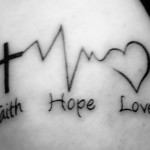 The following post is from Brent Bailey, a Master of Divinity student at Abilene Christian University. Brent. You can find his blog at oddmanout.net.
The following post is from Brent Bailey, a Master of Divinity student at Abilene Christian University. Brent. You can find his blog at oddmanout.net.
One of many “Aha!” moments for me working with The Marin Foundation this summer was when Kevin brought to my attention the difference between transparency and vulnerability, two words I had been using synonymously. Whereas I employed both words to mean something like “the opposite of hiding or secrecy,” they actually each represent different approaches to sharing parts of one’s identity, and understanding the distinction between transparency and vulnerability is crucial for treating other people with sensitivity.
Let me explain how I’m distinguishing the terms. Transparency merely refers to the quality of being upfront and forthright. Vulnerability refers to something much more sacred and significant, as it involves exposing the tender places of one’s soul. When we say someone is being transparent, we mean they’re not attempting to hide anything. When we say someone is being vulnerable, though, there’s inherent risk involved, an extension of trust that leaves open the possibility that the vulnerable person may be hurt.
Recognizing whether someone is extending transparency or vulnerability in any given situation determines what sort of response is appropriate. In my experience, conservative Christians who are unfamiliar with sexual minorities often have trouble identifying whether sexual minorities are being transparent or vulnerable, and I believe this leads them to interact in ways that are unintentionally problematic. When someone demonstrates transparency, it’s a means of making clear some reality about themselves, like what they’re allergic to or where they went to college. Transparency doesn’t necessarily leave the door open for further conversation, and when people try to inquire further or take issue with the information, that response may be entirely unwelcome. When someone demonstrates vulnerability, it’s a means of inviting someone into closer intimacy, a posture of taking off one’s armor and connecting with someone more deeply. In the best cases, the practice of vulnerability allows the other person to speak words of grace and compassion into those tender places, and it often results in reciprocated vulnerability. In the worst cases, vulnerability results in profound wounds and severe scars, and it makes future vulnerability difficult or impossible. Unlike transparency, vulnerability somewhat requires interaction from the person who receives it. An inappropriate response to vulnerability would be something like withdrawing or retreating, leaving the other person exposed without respecting the weight of what they’ve revealed.
When people begin coming out—and here’s what Kevin really helped me understand—I think it’s inevitable those initial coming out conversations will involve vulnerability. They’re still exploring their own identities and discovering how other people are going to react to them, and what people say in those moments matters because they’re opening these tender places for the first time. Eventually, though, they’ll probably reach a certain level of confidence and comfort in their sexual orientation or gender identity, and they may begin acknowledging their orientation or gender identity to others simply for the sake of transparency. If you’re unfamiliar with sexual minorities—and many conservative Christians occupy this camp, if for no other reason than they happen not to be close with any out LGBT individuals—it may feel like someone else is being intensely vulnerable when they mention that they’re bisexual or transgender or whatever else. But if that person is merely being transparent, it would be inappropriate to try and drive the conversation deeper, since they may not be welcoming that kind of interaction. The inverse is also harmful. If someone’s coming out is a moment of intense vulnerability for them, you might inadvertently treat it as transparency—either because you’re uncomfortable with the information and don’t want to go further, or because you’re toocomfortable with the information and don’t recognize the significance for the individual—and that would be equally inappropriate, abandoning the other person to their vulnerability.
So, for example, if a transgender person says to you, “I identify as female, and I prefer the pronouns ‘she’ and ‘her'” for the sake of transparency, the individual hasn’t asked for your opinions or invited your beliefs. She’s simply been proactive and let you know something about her. It would probably be inappropriate in that case to offer your own perspective on transgender people or to pry further (genuinely curious as you may be), since she hasn’t opened the door for that kind of intimacy. If, on the other hand, someone opens up to you about their feelings for a same-sex friend and asks for your perspective and advice, they’re showing a lot of vulnerability, and they’re welcoming you into greater intimacy. It would be inappropriate here to dismiss the question or change the subject, and it would be profoundly harmful to attack that tender place.
When you know there is a difference between transparency and vulnerability, I think it becomes relatively easy to distinguish the two and respond accordingly, even though the words used may sound similar. It’s simply a matter of recognizing that people are in different places and that any given person might demonstrate varying levels of vulnerability in different relationships. Though I’ve reached a point in my own journey where I can practice transparency in all my relationships, I choose to practice vulnerability among a select, scattered circle of loved ones whom I’ve come to trust. It’s simply too dangerous and too tiring for me to expose the sensitive areas of my soul to people who might not care to honor and protect them. (As someone who writes a personal blog, this distinction has become absolutely critical for me online. I see value in writing transparently for the benefit of those who read, but I don’t possess the emotional strength to make myself vulnerable to everyone who might read and comment.)
The best kind of relationship stuff happens, I think, when we take the risk of vulnerability. There’s a certain kind of sacredness to those moments when one person lets down their guard in the proximity of a friend who knows not to do harm. Taking that risk of vulnerability is a huge risk, though, and we ought not to expect or assume it from people who haven’t chosen to take that chance. Even in those occasions when someone is merely transparent for the sake of honesty, let’s cherish the privilege of knowing each other more fully.
Much love.











